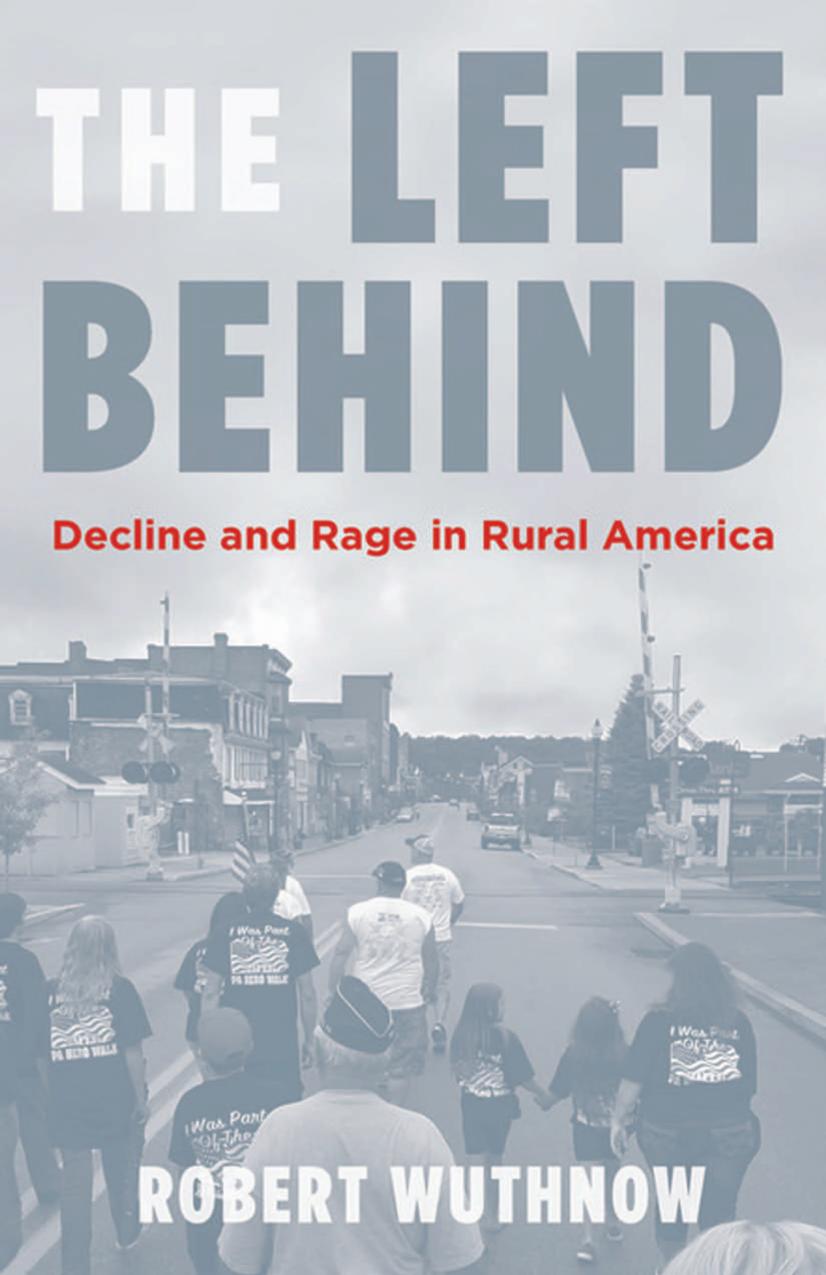The Left Behind: Decline and Rage in Rural America by Robert Wuthnow

Author:Robert Wuthnow [Wuthnow, Robert]
Language: eng
Format: epub, pdf
Tags: Social Science, Sociology, Rural, General, Political Science, American Government, Civics & Citizenship, Civil Rights
ISBN: 9780691177663
Google: d1iYDwAAQBAJ
Amazon: 069117766X
Publisher: Princeton University Press
Published: 2018-02-27T00:00:00+00:00
WASHINGTON IS DISTANT
The most common refrain in rural people’s criticisms of Washington parallels Reverend Patterson’s remarks. Washington is distant from their communities, geographically and culturally. As far as they can see, the federal government hasn’t the least interest in trying to understand rural communities’ problems, let alone do anything to fix them. The sentiment is so pervasive, so vehement, that it is hard to get underneath it to see what it means. And yet it is clearly more than a knee-jerk reaction. It bears a close affinity with the threads that tie together rural communities’ accepted way of life. Washington stands for everything causing these threads to unravel.
The basis of small-town life is not only that it is “rural” but that it is small, which means what happens is close enough to witness firsthand and to experience intimately enough to understand and have some hope of influencing. Whether Washington was “up there,” “down there,” or someplace else in people’s minds, it was so far away that people we talked with couldn’t understand it—“so distant that I just feel helpless.” And they were pretty sure Washington didn’t understand them. “They’re just not listening to us out here.”
Whoever Washington was listening to, it wasn’t anybody “small.” Not the small farmer, the small-business owner, or people living in small places. It was somebody “big.” It was the big interests, big cities, big businesses, and big farmers. Washington itself was big, too big to get anything done, run by the big boys who only knew how to talk big. It was “a bunch of big-headed guys” there with brilliant ideas that didn’t work. Washington was doing everything it could either to bail out or regulate big banks, but in the meantime small banks were hurting. Washington was catering to corporate farming interests and lobbyists instead of small farmers. “Remember the little man” was a frequent plea.
Washington’s perceived remoteness from rural areas is reminiscent of decades-old perceptions of rural-urban differences. By the end of the nineteenth century the agrarian ideal that had inspired Jefferson had become in many urban depictions the last vestige of a rough-hewn but ignorant population hoping to flee from the farms to a better life in the cities. Rural people could argue that the cities teemed with gangsters and hucksters—that it was the “country mouse” against the “city slicker”—but it was they who lacked and coveted electric lights and indoor plumbing. It was they whom the twentieth century would read about as H. L. Mencken’s “simian peasants” and Richard Hofstadter’s “paranoid style.”1
Rural voters’ view that Washington is beholden to urban interests surfaced frequently in my interviews. “Don’t forget us,” one rural Midwesterner pleaded. “Maybe our population isn’t as big as cities, but we represent something cities never will.” Said another, “Don’t just focus on your urban areas, which I realize is where the money is. Focus on your rural areas where you still have strong morals and values.” These concerns, however, reflect twenty-first-century realities as well as time-worn misgivings. For example,
Download
The Left Behind: Decline and Rage in Rural America by Robert Wuthnow.pdf
This site does not store any files on its server. We only index and link to content provided by other sites. Please contact the content providers to delete copyright contents if any and email us, we'll remove relevant links or contents immediately.
The Secret History by Donna Tartt(16621)
The Social Justice Warrior Handbook by Lisa De Pasquale(11489)
Thirteen Reasons Why by Jay Asher(7788)
This Is How You Lose Her by Junot Diaz(5769)
Weapons of Math Destruction by Cathy O'Neil(5036)
Zero to One by Peter Thiel(4824)
The Myth of the Strong Leader by Archie Brown(4789)
Promise Me, Dad by Joe Biden(4447)
Beartown by Fredrik Backman(4415)
Stone's Rules by Roger Stone(4415)
How Democracies Die by Steven Levitsky & Daniel Ziblatt(4398)
The Fire Next Time by James Baldwin(4342)
100 Deadly Skills by Clint Emerson(4076)
A Higher Loyalty: Truth, Lies, and Leadership by James Comey(4032)
Rise and Kill First by Ronen Bergman(4012)
The David Icke Guide to the Global Conspiracy (and how to end it) by David Icke(3881)
The Farm by Tom Rob Smith(3872)
Secrecy World by Jake Bernstein(3782)
The Doomsday Machine by Daniel Ellsberg(3730)
